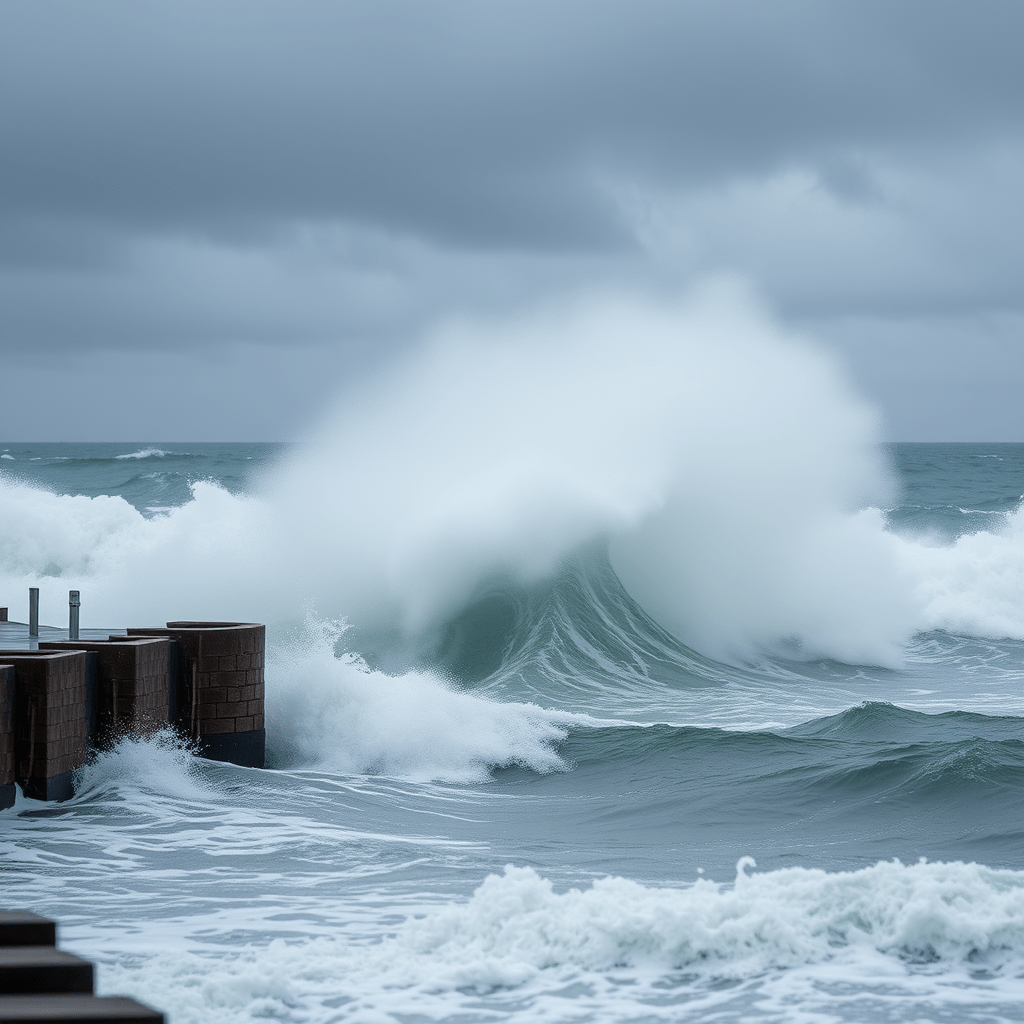Hurricane Economic Effects: The Financial Impact of Nature’s Fury
Hurricanes are nature’s most formidable forces, unleashing devastating power that profoundly impacts the economy. The hurricane economic effects extend far beyond the immediate destruction caused by wind and water. They reverberate through local, national, and even global markets, affecting sectors from real estate to agriculture.
Table of Contents
Hurricane Economic Effects: Immediate Financial Damages
When a hurricane strikes, the immediate economic consequences can be staggering. Reports from the National Oceanic and Atmospheric Administration (NOAA) indicate that costs can range from millions to billions of dollars, heavily reliant on the storm’s intensity and the region affected.
The damage to infrastructure—such as roads, bridges, and essential public structures—often forms a significant part of the overall costs. For instance, Hurricane Katrina’s economic toll exceeded $125 billion, influencing both recovery efforts and long-term economic viability in the region.
Property and Infrastructure Destruction
The initial onslaught of hurricanes leads to widespread loss of property. Homes, businesses, and vital infrastructures like hospitals and schools often suffer catastrophic damage. This destruction results in substantial financial burdens for homeowners and insurance providers alike and creates a ripple effect that leads to increased unemployment due to business closures. Rebuilding and restoring affected areas can take years, ultimately delaying economic recovery and putting additional strain on local economies.
Disruption of Local Economies
The hurricane economic effects adversely impact local economies. Retailers, service businesses, and restaurants may close temporarily or even permanently, resulting in significant revenue losses. Regions that rely heavily on tourism, such as coastal areas in Florida and the Gulf Coast, experience devastating effects when attractions are damaged. For example, in the aftermath of Hurricane Sandy in 2012, New York City’s tourism sector faced an estimated $2 billion loss in revenue as visitors canceled trips.
Impact on Agriculture and Fisheries
Hurricanes pose a severe threat to the agricultural sector. High winds and flooding can obliterate crops and livestock, leading to significant economic losses for farmers. After Hurricane Harvey struck Texas in 2017, the state’s agricultural losses were estimated to reach $600 million, severely impacting local farmers and disrupting the wider supply chain. Similarly, hurricanes can decimate fisheries, impacting local economies reliant on fishing and seafood production.
The Strain on the Insurance Industry
The hurricane economic effects extend deeply into the insurance sector. Following a hurricane, insurers often face overwhelming claims that can lead to significant payouts. This situation may result in increased premiums for homeowners, creating affordability issues and market instability. In the long run, this financial strain can discourage investment in hurricane-prone areas, as homeowners might find insurance coverage prohibitively expensive.
Long-Term Economic Consequences
Beyond the immediate effects, hurricanes can provoke substantial long-term economic consequences. Areas devastated by storms may see a decline in population as displaced residents relocate in search of stability, leading to diminished economic activity. Furthermore, businesses may opt to expand or relocate to more stable regions, stunting recovery and growth. The resulting demographic shifts can lead to sustainable tax revenue declines, limiting funding for infrastructure restoration and essential services.
Government Responses to Mitigate Economic Impacts
Government responses play a vital role in supporting local economic recovery after a hurricane. Federal Emergency Management Agency (FEMA) and state emergency services collaborate to coordinate disaster relief efforts. However, these financial assistance programs often become mired in bureaucracy and can suffer delays, hampering immediate recovery efforts and extending the time it takes for communities to bounce back.
Importance of Infrastructure Investment
Investing in more resilient infrastructure is crucial in lessening future hurricane economic effects. By reconstructing and fortifying structures, governments can make communities more resilient against subsequent natural disasters. Projects such as improved flood control measures and stronger building codes not only help mitigate damages but also contribute to long-term economic benefits by preserving local economies and ecosystems.
The Role of Forecasting and Preparedness
Effective forecasting and preparedness can significantly diminish some of the economic impacts associated with hurricanes. Advancements in meteorological science have dramatically improved storm prediction capabilities, allowing for better-prepared communities in anticipation of impacts that could affect business operations and evacuation necessities. Moreover, community training in emergency management can bolster resilience, enabling residents to respond swiftly and efficiently in crisis situations.
Leveraging Technology for Recovery
The advent of modern technology has also proven beneficial in expediting recovery efforts. Digital platforms allow residents to request assistance quickly and provide real-time updates on local conditions. Businesses can leverage technology-driven supply chain strategies to ensure they maintain service delivery during the recovery phase, enhancing their adaptability and resilience against economic disruptions.
Global Economic Interconnections and Supply Chain Vulnerabilities
The economic impacts of hurricanes often extend beyond local and regional boundaries, impacting global economic interconnections. Disruptions in supply chains that rely on goods produced in hurricane-affected areas can resonate worldwide. For example, when Hurricane Laura impacted petrochemical production in the Gulf Coast, the ripple effects were felt globally, with significant fluctuations in fuel prices impacting economies around the world.
The hurricane economic effects highlight the urgent need for enhanced resilience and strategic planning across all sectors. Collaborative efforts among communities, businesses, and governments are essential for bolstering disaster preparedness, streamlining recovery processes, and building sustainable infrastructures. A deep understanding of the economic repercussions of hurricanes provides valuable insights that inform strategies aimed not only at addressing immediate damages but also fostering long-term economic stability.







